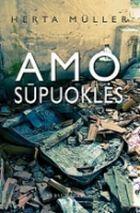What do you think?
Rate this book


285 pages
First published August 17, 2009
When I had nothing to cook, the smoke snaked through my mouth. I drew in my tongue and chewed on nothing. I swallowed my spit with the evening smoke and thought about bratwurst. When I had nothing to cook, I walked close to the pots and pretended that I was on my way to brush my teeth at the well before going to bed. But by the time I put my toothbrush in my mouth I had already eaten twice. First I ate the yellow fire with the hunger of my eyes and then the smoke with the hunger of my mouth. As I ate, everything around me went still, all I could hear was the rumble of the coke ovens from the factory yard. The faster I tried to leave the well, the slower I went. I had to tear myself away from the little fires. In the rumble of the coke ovens I heard my stomach growling, the whole scene was filled with hunger. The skies sank back onto the earth, and I staggered back to the yellow light of the barrack.



What can be said about chronic hunger. Perhaps that there’s a hunger that can make you sick with hunger. That it comes in addition to the hunger you already feel. That there is a hunger which is always new, which grows insatiably, which pounces on the never-ending old hunger that already took such effort to tame. How can you face the world if all you can say about yourself is that you’re hungry.
"For instance, the hunger angel must have a Minkowski-wire of his own, only it's not clear from the book if the hunger angel's wire always stays attached to us, which is why he never really goes away when he says he's coming back."

Man kann sich nicht schützen, weder durchs Schweigen noch durchs Erzählen.